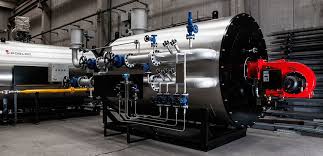
ທ.ວ. . 01, 2024 23:08 Back to list
Cost-effective Solutions for Replacing Your Hot Water Boiler Efficiently and Safely
Hot Water Boiler Replacement A Comprehensive Guide for Homeowners
As homeowners, we often take our heating systems for granted until they fail to function properly. One crucial component of your home’s heating system is the hot water boiler. When the time comes for a hot water boiler replacement, it is essential to approach the process with careful consideration and planning. This guide aims to provide you with the information you need to make informed decisions regarding your hot water boiler replacement.
Understanding the Importance of Your Boiler
Hot water boilers are designed to heat water and provide warmth throughout your home. A well-functioning boiler ensures that you have access to hot water for showers, cleaning, and cooking, all while maintaining a comfortable environment in colder months. However, like any appliance, boilers have a finite lifespan, typically ranging between 15 to 30 years, depending on usage and maintenance. Knowing when to replace your boiler is crucial to prevent unexpected breakdowns and costly repairs.
Signs That It’s Time for Replacement
Several indicators can signal the need for a hot water boiler replacement
1. Age of the Boiler If your boiler is over 15 years old, it might be nearing the end of its useful life. 2. Increased Energy Bills A sudden spike in your energy bills may indicate your boiler is no longer operating efficiently. 3. Inconsistent Heat If you experience uneven heating or fluctuating water temperatures, it could mean your boiler is failing. 4. Leaks and Corrosion Visible leaks or rust around your boiler can signify significant issues that could require replacement. 5. Unusual Noises Banging, clanging, or gurgling noises from your boiler may indicate that components are malfunctioning.
Choosing the Right Replacement Boiler
When it comes to selecting a new hot water boiler, several factors come into play
1. Type of Boiler Decide between a traditional, combi, or system boiler. Traditional boilers are common in homes with a separate hot water tank. Combi boilers provide instant hot water without the need for a separate cylinder, while system boilers are great for larger households with higher demand.
2. Fuel Source Boilers can operate on various fuel types, including natural gas, oil, electricity, or renewable options like biomass. Consider availability, cost, and environmental impact when choosing your fuel source.
hot water boiler replacement

3. Efficiency Ratings Look for a boiler with a high efficiency rating, which means it will convert more energy into usable heat. Energy-efficient models may have a higher initial cost but will save you money in the long run through lower energy bills.
4. Size and Capacity The size of your new boiler should match your home’s heating needs. An undersized boiler will struggle to provide warmth, while an oversized unit will cycle on and off frequently, reducing efficiency.
Consulting with Professionals
Once you’ve assessed your boiler needs, it’s time to consult with heating professionals. A certified technician can evaluate your current system and provide recommendations based on your specific situation. They can help you with sizing, selecting the right model, and ensuring that all installation requirements are met.
The Installation Process
Hot water boiler replacement typically involves the following steps
1. Assessment The technician will evaluate your current system and indicate any necessary upgrades to accommodate the new installation. 2. Removal of the Old Boiler This process involves safely disconnecting and removing the existing unit. 3. Installation of the New Boiler This stage includes setting up the new boiler, connecting it to the existing heating and plumbing systems, and ensuring it complies with local regulations. 4. Testing After installation, rigorous testing will ensure that the boiler operates correctly and efficiently.
Maintenance After Installation
Once your new hot water boiler is installed, regular maintenance is key to maximizing its lifespan and efficiency. Schedule annual servicing with a qualified technician to inspect, clean, and optimize your new system. Staying proactive about maintenance can help you avoid unexpected issues and prolong the life of your new boiler.
Conclusion
Replacing your hot water boiler is a significant investment that requires careful planning and consideration. By recognizing the signs of a failing system, understanding your options, and consulting with experts, you can make informed decisions that will keep your home warm and comfortable for years to come. As with any home improvement, being informed is the first step toward a successful upgrade.
-
Commercial Steam Boilers for Sale - AI Optimized Efficiency
NewsAug.02,2025
-
Efficient Biomass Fired Hot Water Boiler | AI Heating Solution
NewsAug.01,2025
-
High-Efficiency Gas Thermal Oil Boilers | HPT Models
NewsJul.31,2025
-
Oil Fired Hot Water Boilers Sale - High Efficiency & Affordable
NewsJul.31,2025
-
High-Efficiency Commercial Oil Fired Steam Boiler for Industry
NewsJul.30,2025
-
High-Efficiency Biomass Fired Thermal Oil Boiler Solutions
NewsJul.30,2025
Related PRODUCTS






















